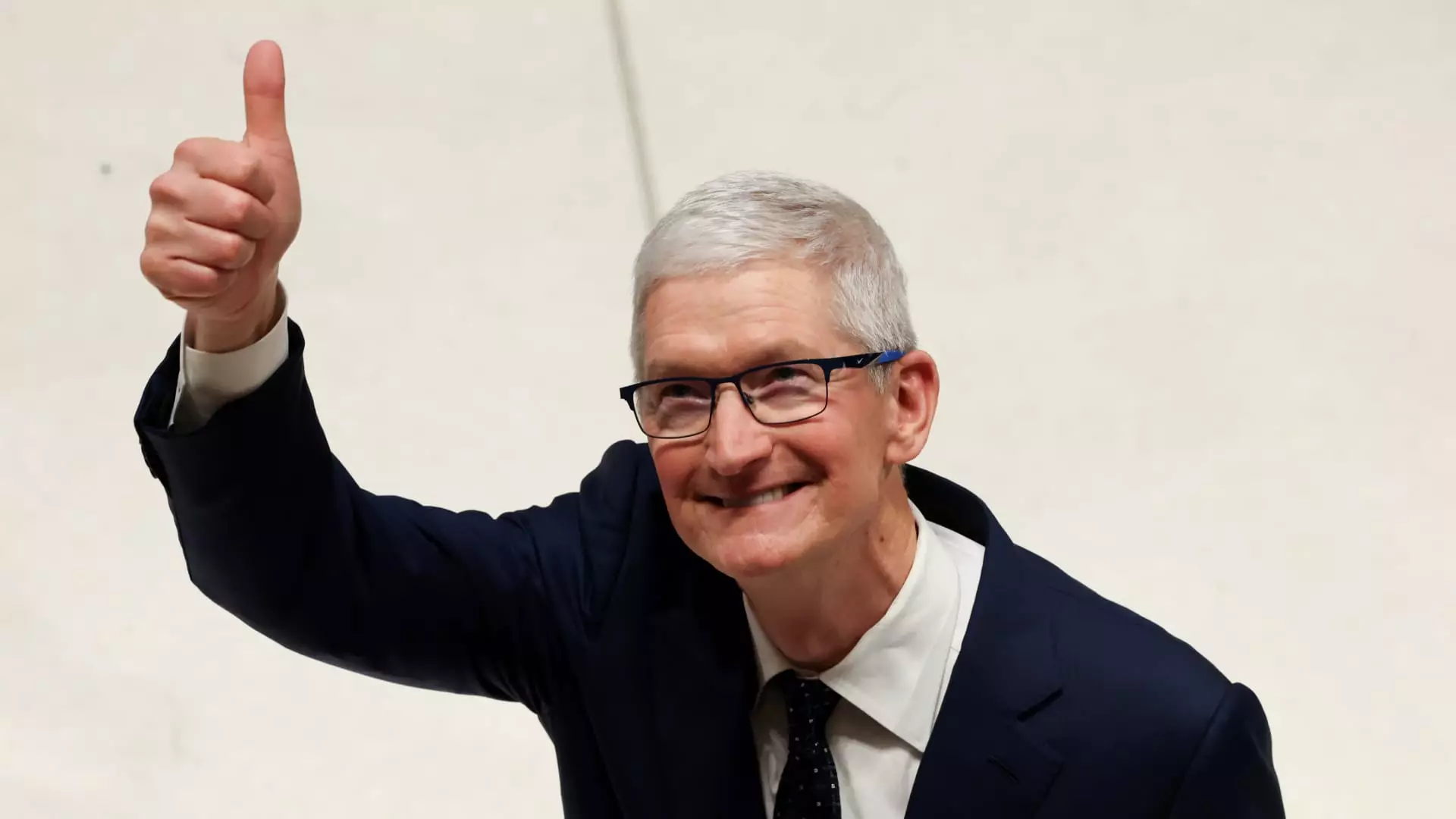In an era where technology is woven deeply into the fabric of daily life, the sanctity of personal data has become a contentious battleground. Apple’s recent triumph over the U.K. government’s attempt to impose a “backdoor” into iPhones starkly underscores the ongoing struggle between individual privacy rights and governmental authority. The Investigatory Powers Tribunal’s ruling is not merely a legal victory for Apple; it is a fundamentally principled stance advocating for the right to privacy. The fact that a government would attempt to cloak its request for such an invasive measure in the guise of “national security” is alarming. It begs the question: how far is too far in the pursuit of protection?
The judges rightly asserted that keeping the details of the case secret would infringe on the cornerstone of open justice. The implications of allowing a governmental entity to enact hidden protocols under the illusion of safeguarding citizens are unsettling. It sets a precedent where the unwarranted breach of privacy could become normalized. The potential for misuse of power hangs in the air, raising a red flag for those who value civil liberties.
The Backdoor Dilemma: Security vs. Privacy
The U.K. government’s call for a backdoor to access encrypted data reflects a complex moral dilemma; how do we balance national security with an individual’s right to privacy? While the intentions behind wanting access to encrypted data may stem from a desire to curtail crime, we must recognize that a backdoor is not merely an unfortunate compromise. It is a gateway to potential misuse that undermines the very fabric of secure communication.
Apple has been a staunch defender of its encryption technology, arguing that weakening such systems will not only expose users to data breaches but also facilitate surveillance that infringes on personal freedoms. The Advanced Data Protection (ADP) system that Apple advocates ensures that users’ private information is sealed behind layers of encryption that even Apple cannot easily breach. When government demands compel companies to drop their security measures, they effectively become complicit in dismantling the very protections they claim to provide.
In the face of threats like terrorism, sexual crimes, and cyber theft, one must contemplate whether diminishing privacy and security truly equates to improved safety. More often than not, such justifications lead to greater risks and a slippery slope of increasingly intrusive measures. The notion that criminals require a method for communication doesn’t justify eroding the rights of lawful citizens.
A Global Concern: Tech Firms Under Fire
Apple’s fight is not an isolated case. Around the globe, tech firms struggle with various governments seeking “backdoors” into encrypted platforms. This raises pressing concerns about the measures of control and surveillance that various regimes envision over their populations. In the United States, the discussion about privacy remains fraught with complications and contradictions, especially with a historical context of governmental overreach.
What we observe today is a growing chorus from lawmakers, many of whom seem ill-equipped to grasp the technological complexities involved. Their insistence on creating exceptions based on fear mongering frequently dismisses a crucial point: the functionality of encryption is not just about protecting individual users; it’s about safeguarding the communications that drive a democratic society. Ceding to governmental demands can set off a chain reaction, paving the way for more invasive laws that stifle not only freedom of speech but also the free market, ultimately impacting innovation.
The Imperative for a Proactive Stance on Data Privacy
Apple’s adamant refusal to build a backdoor is a testament to its commitment to user security and privacy. The withdrawal of the ADP system for U.K. users is not merely an operational adjustment; it is an emblematic stance against governmental encroachment on private life. Apple’s announcement articulated a shared discontentment about increasing data breaches and emphasized the need for a robust defense of user data—reflective of a broader responsibility tech companies have towards their audiences.
It’s my assertion that individuals should advocate for transparency and demand accountability from those in power. Society must remain vigilant, holding both governments and corporations accountable for their roles in protecting our information. Users have the agency to choose products and services that prioritize data security and privacy—a powerful statement against governmental intrusion.
The implications of this legal battle extend beyond Apple or even the tech sector; it is a defining moment that resonates with each citizen’s fundamental rights. In our pursuit of safety, we ought not to trade our autonomy for empty promises of protection. The fight for privacy is not just Apple’s; it is a battle that we must all engage in, lest we forfeit our freedoms.

